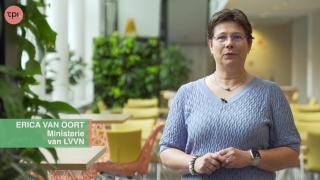Tumor-on-chips to study delivery of protein therapeutics
Valentina is a PhD candidate at the Department of Biochemistry at Radboudumc. Her research focuses on developing and applying organ-on-chip technologies, such as tumor-on-a-chip systems, to study the tissue-specific and cytosolic delivery of protein therapeutics. Valentina's research has also aimed at bridging the gap between engineers and biologists, promoting the use of microfluidic organ-on-chip technologies to answer more relevant biological questions. One example of this is the development of a mathematical model that could be applied to study drug delivery and diffusion in a tumor-on-a-chip system and to extrapolate possible outcomes of the delivery of therapeutic proteins to tumors in the human body. Another collaboration led to the development of a tumor-on-a-chip where hypoxic conditions can be replicated and investigated, and where the targeting of specific hypoxia markers in tumor cells can be investigated.
New

Helpathon #12 – Can you help Erica?

The NAM Navigator: A unique repository for information on the validation and acceptance of New Approach Methodologies
